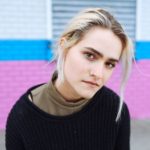Emotional abuse negatively impacts one’s sense of self, and their relationship; when someone manipulates, controls, and taunts their partner, they are engaging in the act of abuse. However, emotional neglect is different. Emotional neglect, as described by Dr. Elliot D. Cohen in Psychology Today, involves “neglectful omissions,” in which a partner does not participate in behaviors that support the emotional wellness of their partner.
Neglect can take many forms. While it is common to acknowledge the trauma of neglect for children, not many adults discuss the ways that a partner might be failing to engage with them on an emotional level. This can leave the relationship feeling lopsided if one is providing a more significant amount of emotional support in the relationship.
Positive forms of emotional support include physical affection, ranging from sexual contact to hugging or holding hands, depending on the nature of the relationship. Emotionally supportive behaviors are ones that set out to show care and compassion, listening and providing feedback when problems occur, and making time to spend with one another. Dr. Cohen explains that these behaviors are “contextually relative,” meaning that each partnership is different, and requires varying levels of affection and emotional support. People must learn to analyze what they need from a partner, and be willing to provide a supportive foundation. Partnerships are based on the union of two people and function best when both partners can provide the diligence and care necessary to sustain a healthy relationship.
There are many reasons a partner can be neglectful, ranging from traits of narcissism to workaholism, to psychological conditions such as eating disorders, depression, and substance abuse; these conditions can understandably narrow one’s ability to support others or see outside of their own pain. If a partner is occasionally neglectful, refusing to interact after a heated argument, or not always engaging in physical contact, this does not necessarily mean that they are emotionally neglectful. However, when these behaviors become habitual, turning into a pattern of continuous detachment, it can often be considered emotional neglect.
If a partner feels emotionally unavailable time and time again, failing to share basic forms of intimacy and compassion when the requests for their support are reasonable, they may be emotionally neglectful. One must decide what they need out of their relationship, and consider if their partner is providing them with equal levels of emotional support. Couples’ therapy can greatly improve the conditions of neglect, but only if the partner is willing and able to change their own behavior. At times, we cannot alter the circumstances our partners are in, no matter how deeply we love them. Understanding the initial signs of neglect can help someone determine if they are getting a healthy amount of support and mutual affection from the person they love.



